We have entered a period of uncertainty and insecurity. The rise of authoritarian nationalism and increasing hardships as a result of stalled or declining economies have adversely affected commitments to democratic institutions around the world. Recent elections and referendums in Europe and the United States have deepened global anxieties.
It has been inquired throughout the post-colonial era in Africa how democracy can be strengthened and the security of its people simultaneously enhanced. These questions have also been taken up in several essays published on AfricaPlus and elsewhere.[i] The series of forums in Evanston and Chicago, Illinois, March 6-8, 2017, will make possible enhanced debates on this quandary.
The first chapter of my 1987 book, Democracy and Prebendal Politics in Nigeria: The Rise and Fall of the Second Republic, was entitled “A Democracy That Works.” Three decades later, in a public address in Ibadan, Nigeria, I observed that many Nigerians felt no closer to achieving this objective: “In many local debates and media commentaries,” I said, Nigerians inquire: “Since we are increasingly free to vote for candidates of our choice, and voting results are made to coincide with ballots cast, why are we so ill-served by federal, state, and local governments?” “How,” they insistently ask, “can our democracy evolve from the routine performance of certain acts, such as electioneering, to the performance of governmental duties that increase the supply of public goods and enhance public welfare?”[ii]
In the public forums, March 7-8, 2017, at Northwestern University, the Chicago Council on Global Affairs, and the Institute of Politics of the University of Chicago, three prominent experts—Professor Attahiru Jega, Professor Wale Adebanwi, and Ambassador Dr. John Campbell— will lead discussions of these issues, in association with local scholars.
Agenda
Tuesday, March 7
Attahiru Jega and Electoral Democracy in Africa
Sara Monoson, presiding
Attahiru Jega, John Campbell, Moses Khisa, Salih Nur, Rachel Riedl, Will Reno, Richard Joseph, presenting
Northwestern University, Scott Hall, Guild Lounge
601 University Place, Evanston, IL 60208
11:00am – 1:45pm
African Labyrinths: Corruption, Democracy, and Insecurity
Wale Adebanwi, presenting
John Campbell, Juliet Sorensen, responding
Northwestern University, Chambers Hall Conference Center
600 Foster Street, Evanston, IL 60208
2:00 – 4:00pm (reception follows)
Africa: Democracy and Insecurity
John Campbell, Wale Adebanwi, and Funmi Olopade (Richard Joseph, moderator)
Chicago Council on Global Affairs, Conference Center
Prudential Plaza, 130 E Randolph St., Chicago, IL 60601
5:30pm – 7:15pm
Wednesday, March 8
Democracy in Africa: Progress and Retreat
Wale Adebanwi, John Campbell, and Attahiru Jega (Richard Joseph, moderator)
University of Chicago, Institute of Politics, Living Room
5707 S Woodlawn Ave, Chicago, IL 60637
12:00-2:00pm
Special Guests
Professor Attahiru Jega

Professor Jega assumed what seemed a “mission impossible” in 2010 when he was appointed by Nigerian president Goodluck Jonathan as the Chairman of Nigeria’s Independent Electoral Commission (INEC). Here is an excerpt from an interview on National Public Radio following the successfully conducted March 2015 presidential elections[iii]:
Joseph: The appointment of Prof. Attahiru Jega as Chairman of the Electoral Commission was a decision many of us applauded. We can take a little pride because he has a PhD in Political Science from Northwestern University. He has also served as a Professor and Vice Chancellor of Bayero University, Kano.
McDonnell: I assume that he was under an enormous amount of pressure.
Joseph: Yes, and we will probably never know the extent of it. I wouldn’t be surprised if there were risks to his life. Senior military and security figures, and major politicians who invested a lot in the election, became concerned that the man in charge of the electoral process was not going to play ball. They ramped up the pressure but he withstood it.
I repeated this praise in the public address of February 2016 mentioned earlier: “I also salute Professor Attahiru Jega for his bold and skillful leadership of the Independent National Electoral Commission (INEC) from the 2011 through the 2015 national elections.” It is perhaps not always appreciated how difficult it is to organize elections in countries with such severe infrastructural deficiencies as Nigeria; and how challenging it is to ensure respect for constitutional and other guidelines in their administration. Usually, governing regimes do not want elections to be truly competitive and do not countenance, especially, putting at risk control of the presidency and all its attributes.
Prof. Jega and his team overcame enormous logistic hurdles and even made provisions for many persons displaced by the Boko Haram insurgency to exercise their voting rights. The INEC Chairman was sometimes force to yield to political and other pressures. These included demands by senior security and military advisers to President Jonathan that the 2015 elections be postponed to permit the armed forces to make greater gains against the insurgency. Prof. Jega gave ground, but not much, by authorizing a small postponement in the balloting. Still, the governing party, the Peoples Democratic Party, lost to the All Progressives Congress led by Muhammadu Buhari. Prof. Jega is writing a book about these experiences. During the March 2017 forums, we will learn directly from him about these extraordinary developments, and draw on his wide knowledge of Nigerian society and politics.
Professor Wale Adebanwi
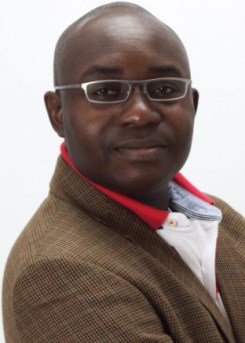
Professor Adebanwi was trained in three academic disciplines: mass communication, political science, and social anthropology. He has been one of the most prolific Nigerian social scientists and his scholarly articles have appeared in many international journals. His publications reflect a weaving of reportorial skills, insights from his unique access to leading Nigerian politicians and other public figures, critical theory, and direct engagement with policy issues.
Three of his recent books will be highlighted: Authority Stealing: Anti-Corruption and Democratic Politics in Post-Military Nigeria (2012); Democracy and Prebendalism in Nigeria: Critical Reflections (2013); and Yoruba Elites and Ethnic Politics in Nigeria: Obafemi Awolowo and Corporate Agency (2014). Authority Stealing centers on the courageous leadership of the Economic and Financial Crimes Commission (EFCC) by Nuhu Ribadu (2003-2007). Under Ribadu, the EFCC vigorously investigated and prosecuted public officials accused of corruption. Democracy and Prebendalism, co-edited with Ebenezer Obadare, is the most far-reaching examination of the concept of prebendalism since this analytical framework was first introduced to Nigerian studies.[iv] Yoruba Elites and Ethnic Politics is a highly informed, insightful, and nuanced study of the complex dynamics of elite politics, Yoruba sub-nationalism, and the charismatic leadership of Chief Obafemi Awolowo over several decades. These innovative works suggest why Wale Adebanwi was appointed to the chair of Rhodes Professor of Race Relations at Oxford University.
Prof. Adebanwi’s presentation at the March 7 panel, “African Labyrinths: Corruption, Democracy, and Development”, will draw on his examination of one of the most perplexing phenomena of political life: systemic corruption. In Ukraine and Rumania in Eastern Europe, Brazil and Venezuela in South America, Indonesia and the Philippines in Asia, and dozens of African nations, pervasive corruption impedes the consolidation of statehood, democracy, and the provision of basic public services. Elites and mass publics retrace pathways in which the exposure and punishment of mega-corruption, money laundering, and other financial crimes are followed by the recrudescence of these same practices and their deleterious consequences. Using the various theoretical lenses deployed in his published studies, Prof. Adebanwi will increase our understanding of these dilemmas and suggest possible avenues for progress.
Ambassador John Campbell
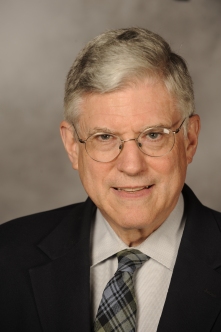
Ambassador Campbell came to my attention, and that of other delegations to Nigeria, when he served as America’s senior diplomat in Nigeria, 2004 to 2007. The presentations that he, together with a team of Embassy officials, gave on Nigerian affairs reflected a degree of frankness and comprehension not often displayed in such briefings. His book, Nigeria: Dancing on the Brink (2011), provided a crisp analysis and depiction of that country’s politics and economy. It was appreciated by scholars, students, and general readers but was displeasing to members of Nigeria’s political class and some media commentators. Dancing on the Brink, as its name implies, was a cautionary tale about dysfunctionality in Nigeria and the risks it portended for the nation and people. It painted a disturbing portrait of inadequate leadership and institutional development. While wounding to Nigerian pride, the concerns it raised are widely expressed by many Nigerians today.
A sunnier book is Morning in South Africa (2016) which again displays Amb. Campbell’s ability to write clearly, and render complex issues accessible to many readers without simplifying them. He provides a surprisingly positive assessment of South Africa’s democratic and social achievements and expresses optimism about its prospects after a quarter-century of post-apartheid government.
As the Ralph Bunche Fellow for Africa at the Council on Foreign Relations, Amb. Campbell’s wide knowledge of the continent has further expanded. In this position, he oversaw the creation of the Nigeria Security Tracker which makes it possible to follow in real time the violent conflicts that plague this country, and especially the Boko Haram insurgency.[v] He brings to the program on Democracy and Insecurity an extraordinary breadth of knowledge, a lifetime of humanitarian engagement, and a pragmatic approach to the persistent gaps between promise and performance in contemporary Africa.
[iii] “The Buhari Challenge: Making Nigerian Democracy Work”. The April 9, 2015 interview was posted on AfricaPlus on April 21. It was conducted by Jerome McDonnell of WBEZ, Chicago. https://africaplus.wordpress.com/2015/04/21/the-buhari-challenge-making-nigerian-democracy-work/#more-1307
[iv] R. Joseph, Class, State, and Prebendal Politics in Nigeria, Journal of Comparative and Commonwealth Studies (1983). A paperback version of Democracy and Prebendalism in Nigeria has been made available by Palgrave Macmillan.
[v] For a recent dissection of that insurgency, see John Campbell, “Boko Haram and Nigeria State Weakness” in John W. Harbeson and Donald Rothchild, Africa in World Politics: Constructing Political and Economic Order. Sixth Edition, (Westview Press, 2017).
All Featured Speakers
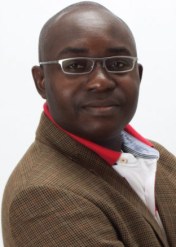 Wale Adebanwi is a professor of African American and African Studies at University of California, Davis. He has published extensively on Nigerian politics, society, and culture. His books include Authority Stealing: Anti-Corruption War and Democratic Politics in Post-Military Nigeria, Yoruba Elite and Ethnic Politics in Nigeria: Obafemi Awolowo and Corporate Agency, and Nation as Grand Narrative: The Nigerian Press and the Politics of Meaning. Adebanwi is also the co-editor of Africa, a journal dedicated to the study of African societies and cultures through the International African Institute. He also serves on the board of trustees for Obafemi Awolowo Institute of Government and Public Policy. He will assume the position of Rhodes Professor of Race Relations of Oxford University in 2017.
Wale Adebanwi is a professor of African American and African Studies at University of California, Davis. He has published extensively on Nigerian politics, society, and culture. His books include Authority Stealing: Anti-Corruption War and Democratic Politics in Post-Military Nigeria, Yoruba Elite and Ethnic Politics in Nigeria: Obafemi Awolowo and Corporate Agency, and Nation as Grand Narrative: The Nigerian Press and the Politics of Meaning. Adebanwi is also the co-editor of Africa, a journal dedicated to the study of African societies and cultures through the International African Institute. He also serves on the board of trustees for Obafemi Awolowo Institute of Government and Public Policy. He will assume the position of Rhodes Professor of Race Relations of Oxford University in 2017.
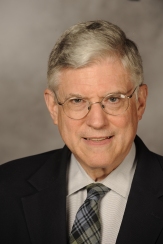
John Campbell is the Ralph Bunche Senior Fellow for Africa Policy Studies at the Council on Foreign Relations. He obtained his Ph.D. from the University of Wisconsin in 1970 and is the author of Morning in South Africa and Nigeria: Dancing on the Brink. From 1975 to 2007, Campbell served as a US Department of State Foreign Service Officer. He held appointments as a political counselor in South Africa and Nigeria in the 1980s, and as Ambassador to Nigeria, 2004 to 2007. He also served as Deputy Assistant Secretary for Human Resources, dean of the Foreign Service Institute’s School of Language Studies, and director of the Office of UN Political Affairs.
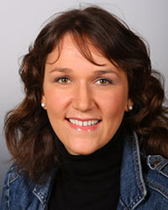 Marina Henke is an assistant professor of Political Science at Northwestern University. Prior to joining Northwestern University, Professor Henke was a Jennings Randolph Peace Scholar with the United States Institute of Peace (USIP) from 2011-2012, served as the editor-in-chief of the Journal of Public and International Affairs (JPIA), and worked with the U.S. House of Representatives’ Ways and Means Committee, the European Commission, the European Parliament, the German Foreign Office, as well as NGOs in Mexico and Argentina. Prof. Henke is currently working on two book manuscripts and several related articles surrounding military interventions, international security cooperation, and European security and defense policy.
Marina Henke is an assistant professor of Political Science at Northwestern University. Prior to joining Northwestern University, Professor Henke was a Jennings Randolph Peace Scholar with the United States Institute of Peace (USIP) from 2011-2012, served as the editor-in-chief of the Journal of Public and International Affairs (JPIA), and worked with the U.S. House of Representatives’ Ways and Means Committee, the European Commission, the European Parliament, the German Foreign Office, as well as NGOs in Mexico and Argentina. Prof. Henke is currently working on two book manuscripts and several related articles surrounding military interventions, international security cooperation, and European security and defense policy.
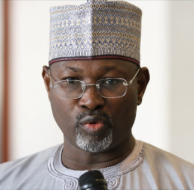 Attahiru Jega is a professor of Political Science and former vice-chancellor of Bayero University Kano. He was Chairman of Nigeria’s Independent National Electoral Commission, 2010-2015. He received the 2016 Charles T. Manatt Democracy Award from the International Foundation for Electoral Systems for his commitment to protecting and promoting the right to vote in Nigeria. Previously, he served as the president of the Nigerian Academic Staff Union of Universities, as a senior research fellow at the Nigerian Institute of International Affairs and a visiting research fellow at the University of Stockholm. He also served as a visiting scholar at George Mason University 2015-2016, and is currently visiting scholar at the Blavatnik School of Government, Oxford University.
Attahiru Jega is a professor of Political Science and former vice-chancellor of Bayero University Kano. He was Chairman of Nigeria’s Independent National Electoral Commission, 2010-2015. He received the 2016 Charles T. Manatt Democracy Award from the International Foundation for Electoral Systems for his commitment to protecting and promoting the right to vote in Nigeria. Previously, he served as the president of the Nigerian Academic Staff Union of Universities, as a senior research fellow at the Nigerian Institute of International Affairs and a visiting research fellow at the University of Stockholm. He also served as a visiting scholar at George Mason University 2015-2016, and is currently visiting scholar at the Blavatnik School of Government, Oxford University.
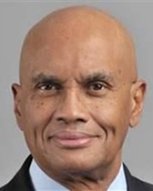 Richard Joseph is the John Evans Professor of International History and Politics at Northwestern University and a nonresident senior fellow in global economy and development at the Brookings Institute. His research and teaching focuses on African governance, political economy, and democratization. His books include Radical Nationalism in Cameroun, Democracy and Prebendal Politics in Nigeria, and he is the editor of Gaullist Africa, Cameroon under Ahmadu Ahidjo, State, Conflict, and Democracy in Africa, as well as the co-editor of Smart Aid for African Development. Previously, Joseph directed the African governance program at the Carter Center and coordinated elections missions in Zambia and Ghana as well as peace initiatives in Liberia. He is a member of the Board of Directors of the Chicago Council on Global Affairs.
Richard Joseph is the John Evans Professor of International History and Politics at Northwestern University and a nonresident senior fellow in global economy and development at the Brookings Institute. His research and teaching focuses on African governance, political economy, and democratization. His books include Radical Nationalism in Cameroun, Democracy and Prebendal Politics in Nigeria, and he is the editor of Gaullist Africa, Cameroon under Ahmadu Ahidjo, State, Conflict, and Democracy in Africa, as well as the co-editor of Smart Aid for African Development. Previously, Joseph directed the African governance program at the Carter Center and coordinated elections missions in Zambia and Ghana as well as peace initiatives in Liberia. He is a member of the Board of Directors of the Chicago Council on Global Affairs.
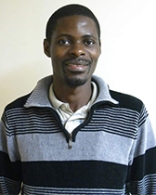
Moses Khisa is a lecturer and adjunct instructor in Political Science at Northwestern University. He received his Ph.D in Political Science from Northwestern in June 2016. His Ph.D dissertation was “The Institutional Transformation of Africa’s Personalist Regimes: A Comparative Analysis of Ethiopia, Ghana, Rwanda, and Uganda,” and his dissertation committee included Professors William Reno (Chair), James Mahoney (Co-Chair), Rachel Riedl, and Ato Kwamena Onoma.
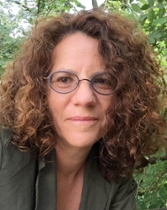 Sara Monoson is a professor of Classics and Political Science and chair of the Department of Political Science at Northwestern University. She is the author of Plato’s Democratic Entanglements: Athenian Politics and the Practice of Philosophy, awarded a Foundations Book Prize by the American Political Science Association, as well as numerous articles on classic political theory in historical and modern contexts. Monoson also directs the collaborative “Classicizing Chicago Project: a local history of classical antiquity,” a digital humanities project, and is a founding director of the Research Workshop in Classical Receptions at the Kaplan Institute for the Humanities, Northwestern.
Sara Monoson is a professor of Classics and Political Science and chair of the Department of Political Science at Northwestern University. She is the author of Plato’s Democratic Entanglements: Athenian Politics and the Practice of Philosophy, awarded a Foundations Book Prize by the American Political Science Association, as well as numerous articles on classic political theory in historical and modern contexts. Monoson also directs the collaborative “Classicizing Chicago Project: a local history of classical antiquity,” a digital humanities project, and is a founding director of the Research Workshop in Classical Receptions at the Kaplan Institute for the Humanities, Northwestern.
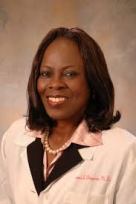
Dr. Olufunmilayo Olopade is the Walter L. Palmer Distinguished Service Professor of Medicine and Human Genetics and the associate dean of Global Health at the University of Chicago, as well as the founding director of the Center for Clinical Cancer Genetics. Olopade is the recipient of several awards, including the Doris Duke Distinguished Clinical Scientist and Exceptional Mentor Award, an American Cancer Society Clinical Research Professorship, a MacArthur Foundation “Genius” Fellowship, and an Officer of the Order of the Niger Award.
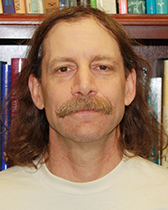 Will Reno is a professor of Political Science and director of the Program of African Studies at Northwestern University. He is the author of numerous articles and several books, including Corruption and State Politics in Sierra Leone (1995), Warlord Politics African States (1998), and Warfare in Independent Africa (2011). Reno has testified before the both US House of Representatives Sub-committee on African Affairs and the US Senate Sub-committee on African Affairs on wars in Africa and in particular the situations in Sierra Leone and Liberia. Reno also served as an advisor to the UN General-Secretary’s office on war in Sierra Leone and Liberia. His current projects relate to African military cultures and doctrines of counterinsurgency and armed group organizational behavior. http://www.willreno.org/
Will Reno is a professor of Political Science and director of the Program of African Studies at Northwestern University. He is the author of numerous articles and several books, including Corruption and State Politics in Sierra Leone (1995), Warlord Politics African States (1998), and Warfare in Independent Africa (2011). Reno has testified before the both US House of Representatives Sub-committee on African Affairs and the US Senate Sub-committee on African Affairs on wars in Africa and in particular the situations in Sierra Leone and Liberia. Reno also served as an advisor to the UN General-Secretary’s office on war in Sierra Leone and Liberia. His current projects relate to African military cultures and doctrines of counterinsurgency and armed group organizational behavior. http://www.willreno.org/
 Rachel Riedl is an associate professor of Political Science at Northwestern University, a faculty associate at the Institute for Policy Research and the Program on Equality, Development and Globalization Studies, and a member of the Executive Committee of the Program of African Studies. Riedl received the Best Book Award of the African Politics Conference Group from the American Political Science Association and the African Studies Association 2014 for her book Authoritarian Origins of Democratic Party Systems in Africa. Her current research focuses on religious actors and political engagement in Sub-Saharan Africa.
Rachel Riedl is an associate professor of Political Science at Northwestern University, a faculty associate at the Institute for Policy Research and the Program on Equality, Development and Globalization Studies, and a member of the Executive Committee of the Program of African Studies. Riedl received the Best Book Award of the African Politics Conference Group from the American Political Science Association and the African Studies Association 2014 for her book Authoritarian Origins of Democratic Party Systems in Africa. Her current research focuses on religious actors and political engagement in Sub-Saharan Africa.
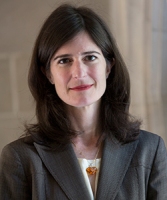 Juliet Sorensen is the Harry R. Horrow Professor in International Law, Center for International Human Rights, at Northwestern Pritzker School of Law. She is a founder of the Northwestern Access to Health Project, an interdisciplinary partnership that analyzes access to healthcare in resource-limited settings. She received the Excellence in Teaching Award from the Master’s in Public Health Program in 2014 and 2015. She currently directs projects on access to public health in Mali and Nigeria.
Juliet Sorensen is the Harry R. Horrow Professor in International Law, Center for International Human Rights, at Northwestern Pritzker School of Law. She is a founder of the Northwestern Access to Health Project, an interdisciplinary partnership that analyzes access to healthcare in resource-limited settings. She received the Excellence in Teaching Award from the Master’s in Public Health Program in 2014 and 2015. She currently directs projects on access to public health in Mali and Nigeria.
This program is supported by the Center for International Human Rights, Department of Political Science, Program of African Studies, and the Transportation Center of Northwestern University; the Chicago Council on Global Affairs; the Center for Global Health and Institute of Politics of the University of Chicago; and the John D. and Catherine T. MacArthur Foundation.